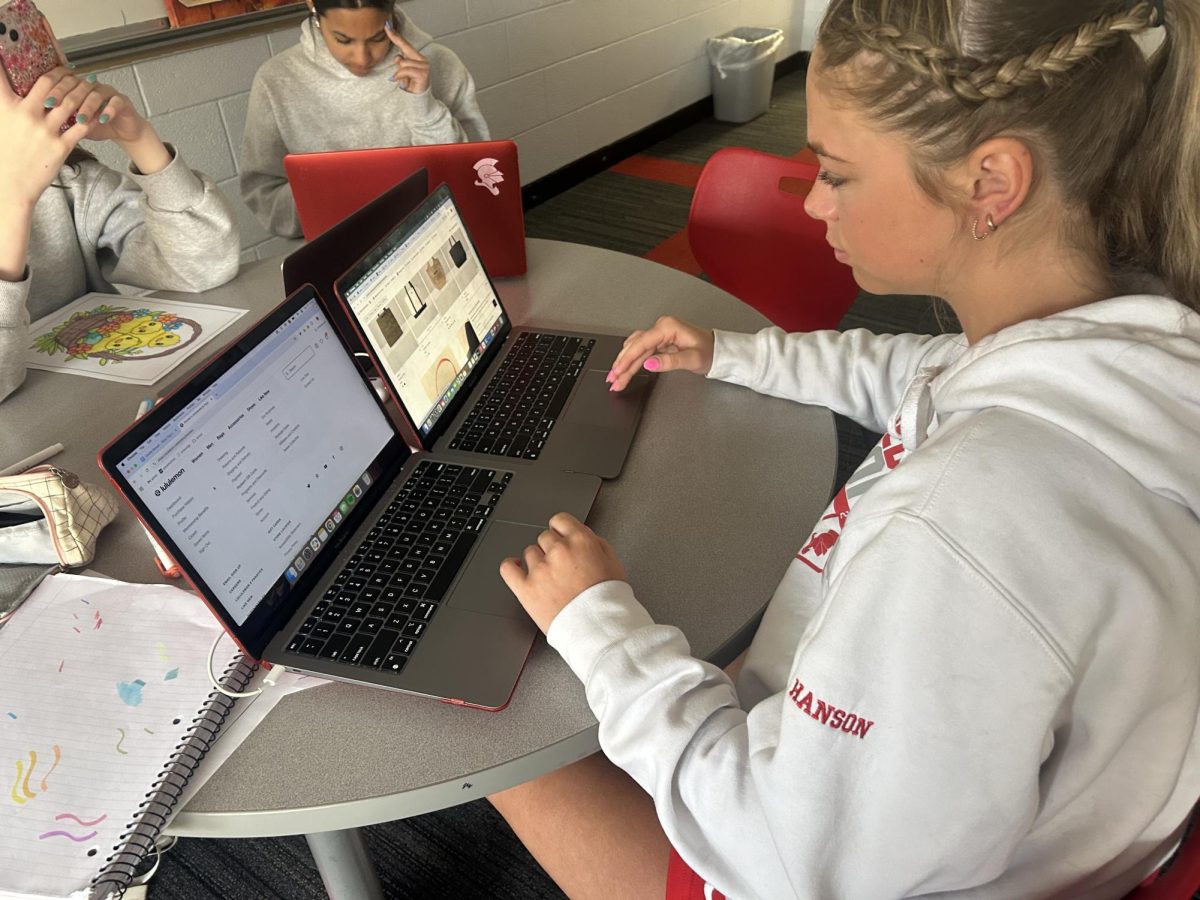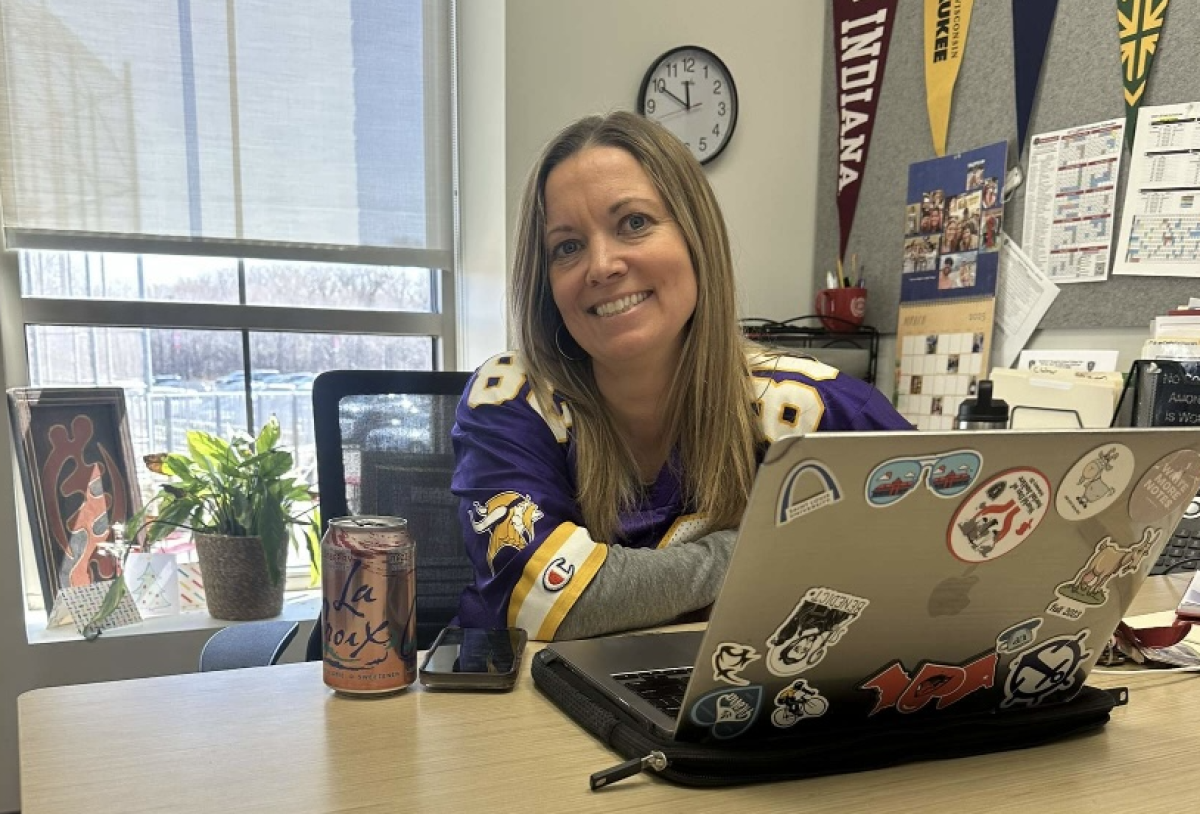Backstage with the tech crew
The BSM community throws support and love behind the Drama Department, but many don’t know that much more goes into theater than they realize. The technical and backstage crew goes above and beyond to bring the shows to life.
Sound Board and Mic Operator Bradford Shibley adjusts the sound levels for the musical.
As excitement builds up before the curtain opens and the crowd wonders who is the lead and who has what part, but no wonders about who is making the play run. Benilde-St. Margaret’s has been producing school plays since BSM was founded in 1907, and none of the plays could’ve been produced without the backstage workers, commonly called “tech crew”. Whether it’s managing the spotlights or making sure everyone has the right prop, the backstage crew is always working hard to make sure the play is running smoothly.
Even though the acting cast spends hours rehearsing and memorizing lines, the crew is working just as many hours. “Each play I spend 20-30 hours just the week before the play doing the microphones for the actors… during tech week (the week before the play), I’m at the theater working until at least 7 o’clock every night,” soundboard and microphone operator Bradford Shibley said.
The almost 30 hours that Brad spends working on the mics is just during tech week, but the backstage crew starts working right after auditions. “I have to start going to rehearsals a few weeks after auditions… I have to learn the script and make marks where props need to go in,” Macy Rooney said. The backstage crew, –– or “techies” –– spend hours upon hours working in order to produce the play.
In fact, tech week is one of the most tiring and difficult parts of being a techie. “Tech week is the hardest because it is very intensive every single day and it requires a lot of focus, but the hard work is worth it in the end,” Shibley said. Not only does it take lots of time and dedication, it also takes planning in advance. “It takes lots of hard work to schedule what happens when and who does what, and when it comes to scheduling there is always something I don’t know about which messes things up –– and fixing it is the hard part,” play advisor and tech specialist Scott Effertz said.
What makes all the hard work worth it is the outcome of the final product. “The show can’t run without the tech. There can be actors, but there wouldn’t be lights, sound, spotlights, [or] anything, so it wouldn’t run smoothly,” Shibley said. With the modern era of technology and this generation of high schoolers, the need for technology is more present than ever. “To the current high schoolers who use technology constantly, the play would be plain and bland without it,” Effertz said. The techies work hard and make sure the play can appeal to the audience.
At the end of the day, without the tech and crewmen, the play would just be people on a stage without any costumes, microphones, props, etc., which would be boring. However, with all the tech, the play comes together and is set to entertain the audience.




































![Teacher Lore: Mr. Hillman [Podcast]](https://bsmknighterrant.org/wp-content/uploads/2025/03/teacherlorelogo-1200x685.png)





